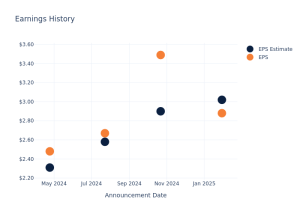These days, just about every company and organization has a mobile app. And banks are no exception.
Mobile banking apps allow you to stay on top of your finances and perform basic tasks from the comfort of your home (or just about anywhere, as long as there’s Wi-Fi). However, not all mobile banking apps are equal when it comes to features, security, and ease of use.
If you’re wondering which banks have the best mobile apps, we can point you in the right direction. Our team evaluated 25 mobile apps offered by major banks, examining key metrics such as mobile storefront availability, security features, customer ratings, and more to identify the 10 best apps available today (see our full methodology here).
Capital One received the top spot on our list for scoring the maximum number of points in every metric we examined. Capital One’s mobile app is available for download on the App Store and Google Play and has a rating of 4.9 and 4.5 stars, respectively.
A few notable features of the Capital One app include the ability to deposit checks, pay bills, and send and receive money via Zelle. Users can also access CreditWise, a credit monitoring tool that provides TransUnion VantageScore 3.0 credit scores and reports, as well as alerts for important changes to TransUnion and Experian credit reports.
Read our full review of Capital One
Chase Bank’s mobile app has an average rating of 4.8 stars on the App Store and 4.4 stars on Google Play. It allows users to review transactions, set up fraud monitoring, deposit checks, and send and receive money via Zelle. The app also offers Chase Pay Over Time, which allows customers to break up eligible credit card purchases into monthly installments with a fixed fee.
Those who need help with budgeting or saving for future goals can take advantage of Chase’s in-app spending and budgeting tools. Chase also offers a free credit score tool with access to your score and tips for how to improve it.
Quontic Bank’s mobile app is available on the App Store and Google Play, with a rating of 4.8 and 4.7 stars, respectively. Customers can use the app to check account balances, deposit checks, pay bills, view payment activity, set up account notifications, monitor their credit score, and more.
Those who value extra account security will appreciate Quontic’s biometric authentication, which uses fingerprint or facial recognition to log in to accounts quickly and securely.
Read our full review of Quontic Bank
With Varo Bank’s mobile app, users can check balances, send peer-to-peer payments, check their credit scores, and even contact a customer support specialist via live chat.
Varo Bank also offers real-time transaction alerts so you can stay on top of account activity. The app is available for download on the App Store and Google Play and has a rating of 4.9 and 4.7 stars, respectively.
Read our full review of Varo Bank
Wells Fargo’s mobile app is available on the Apple Store and Google Play, boasting a rating of 4.9 and 4.8 stars, respectively. With the app, Wells Fargo customers can monitor account balances and transactions, set alerts, send money through Zelle, move funds between accounts, deposit checks, and even open new accounts.
Additionally, customers can access their FICO scores from Experian through the app and get personalized tips for improving their credit. Mobile app users also have the ability to chat with Wells Fargo’s virtual assistant for quick answers to banking questions.
Discover Bank’s mobile app offers many handy features, including mobile check deposit, online bill pay services, Zelle payments, and account alerts.
There are also in-app card locking capabilities, which make it easy to keep your money and your personal information safe if you suspect that it may have fallen into the wrong hands. The app also allows you to log in using your fingerprint, facial recognition, or a four-digit code for an added layer of security.
Read our full review of Discover Bank
The Ally Bank mobile app has a rating of 4.7 stars on the App Store. However, it fell lower on our list because of its 2.3-star rating on Google Play (some customers have mentioned difficulty using the app and receiving system errors).
Even so, the Ally mobile app comes with a variety of helpful features, including the ability to view account balances, transfer funds, deposit checks, pay bills, send money with Zelle, and even find nearby ATMs. Customers who want to keep tabs on their credit scores can also access their FICO score for free using the app.
Read our full review of Ally Bank
First Foundation Bank’s mobile app allows customers to sync all of their accounts in one place, move money between accounts, monitor transactions, deposit checks, pay bills, send money via Zelle, and more.
First Foundation’s app is also a great option for those who want personalized insights on their spending and saving. Its FinSights tool gives customers a breakdown of where their money is going, as well as a personalized “FinStrong” score that tells them a bit more about their financial health.
LendingClub’s mobile app is available for download on the App Store and Google Play and has a rating of 4.8 stars on both storefronts. On the app, customers can move money between accounts, monitor account balances, make payments on loans, lock their debit card, deposit checks, and more. The app also allows users to check their credit scores and sign up for alerts for any changes to their scores.
Read our full review of LendingClub
SoFi’s mobile app rounds out the top 10. It has a rating of 4.8 and 3.8 stars on the App Store and Google Play, respectively. Customers can use the app to track account balances, set savings goals, organize their cash into separate savings vaults, deposit checks, opt into round-ups, and more.
SoFi also offers a number of security features to keep your account safe, including two-factor authentication, in-app card locking capabilities, and 24/7 account monitoring.
Mobile banking can be convenient and efficient, but whether it’s a good fit for you depends on your banking habits and overall comfort using technology. Here’s some more information to help you decide if mobile banking is right for you.
If you’re new to mobile banking, you might wonder why it’s any better than banking in person. In fact, you might worry that it’s not as safe or helpful as working with a live human.
Sure, there are situations when you’ll need to visit a bank branch and speak with someone in person. But mobile banking allows you to manage many aspects of your finances from anywhere at any time, directly from your smartphone or tablet. That means no more driving to a branch or ATM to perform basic banking tasks such as checking balances, transferring funds, paying bills, and depositing checks. Plus, mobile banking apps employ advanced security features, such as two-factor authentication and biometric login, to protect sensitive information. Learn more about the benefits of mobile banking.
Mobile banking apps are often equally as secure as online banking platforms. Many banks offer the same levels of security and encryption on both platforms. You can also use strategies to ensure that your app remains secure and your information doesn’t fall into the wrong hands. This includes changing your mobile banking password periodically, enabling two-factor authentication, logging out of your app every time you’ve finished a session, and more. Learn more about mobile banking safety.
Mobile check deposit is a handy tool that allows you to deposit checks into your bank account using your bank’s app instead of having to visit a bank branch or ATM. The app typically guides you through the process and ensures check images are clear and complete. Once submitted, the bank verifies the check, and the funds are processed into your account. Learn more about mobile check deposit.
Zelle is a digital payment network that facilitates money transfers between bank accounts (usually within minutes). It’s available within most major banking apps and allows users to send and receive money using the recipient’s email address or phone number. However, Zelle transfers are typically irreversible, so it’s important to make sure the recipient’s information is correct before sending a payment. Learn more about Zelle.
Many mobile banking and money-saving apps allow you to link your various financial accounts in order to track activity and progress toward goals all in one place. To ensure these connections are safe, many apps use Plaid — a financial technology tool that acts as a secure bridge between financial institutions and apps, providing encrypted, permission-based access to data. Learn more about Plaid.
According to a report by PYMNTS Intelligence, 60% of millennials, 57% of Generation Z, and 52% of Generation X primarily use mobile banking apps. Additionally, the report found that 97% of customers rated their digital banking experiences positively.
Banks don’t typically charge customers for access to mobile apps. Once you’ve opened your bank account online or in person, be sure to ask a banking representative how to download the bank’s mobile app. Or, you may be able to find it easily on your mobile storefront.
Many financial institutions allow mobile banking to open new accounts directly from the app. However, this feature is dependent on your bank’s policies. You can call your bank or visit its website to learn more about the capabilities of the mobile banking app.
Our grading system, collected and carefully reviewed by our personal finance experts, comprised nearly 250 data points for over 25 mobile banking applications to develop our list of the top 10 mobile banking apps.
We evaluated these applications according to several key metrics:
-
Availability: Mobile apps available for download on both the Apple App Store and Google Play earned the maximum number of points, while those only available on one were penalized.
-
Mobile app rating: Mobile apps with higher average ratings by users on the Apple and Google storefronts scored more points than those with lower ratings.
-
Remote check deposit: Many mobile apps offer remote check deposit capabilities that allow users to snap a photo of a check and deposit it without having to visit a branch or ATM. Apps that offered this feature earned extra points.
-
Credit score tools: Mobile apps that offered in-app credit scoring and/or monitoring tools scored more favorably.
-
Zelle capabilities: Zelle is a peer-to-peer payment tool that allows you to transfer money directly to another person’s bank account, often within minutes. Banks that are part of the Zelle network and offer Zelle within their mobile apps earned extra points.
-
In-app customer support: Mobile apps that offer in-app customer support via chat or virtual assistant were scored more favorably.
-
In-app transfers: We rewarded apps that allow users to transfer funds between accounts and/or to external bank accounts.
-
Two-factor authentication: Apps that offer an added layer of security via facial or fingerprint recognition, security codes, or other forms of two-factor authentication scored more favorably than those that do not.
-
Card locking or freezing capabilities: In some cases, bank customers may want to freeze their debit and/or credit card to control spending or prevent fraud. Apps with card-locking features scored higher in our ranking.
-
Bill pay services: Many banks offer bill pay services within their mobile apps to allow for easier and more convenient payments to service providers. Apps that offered these bill pay services earned extra points.

